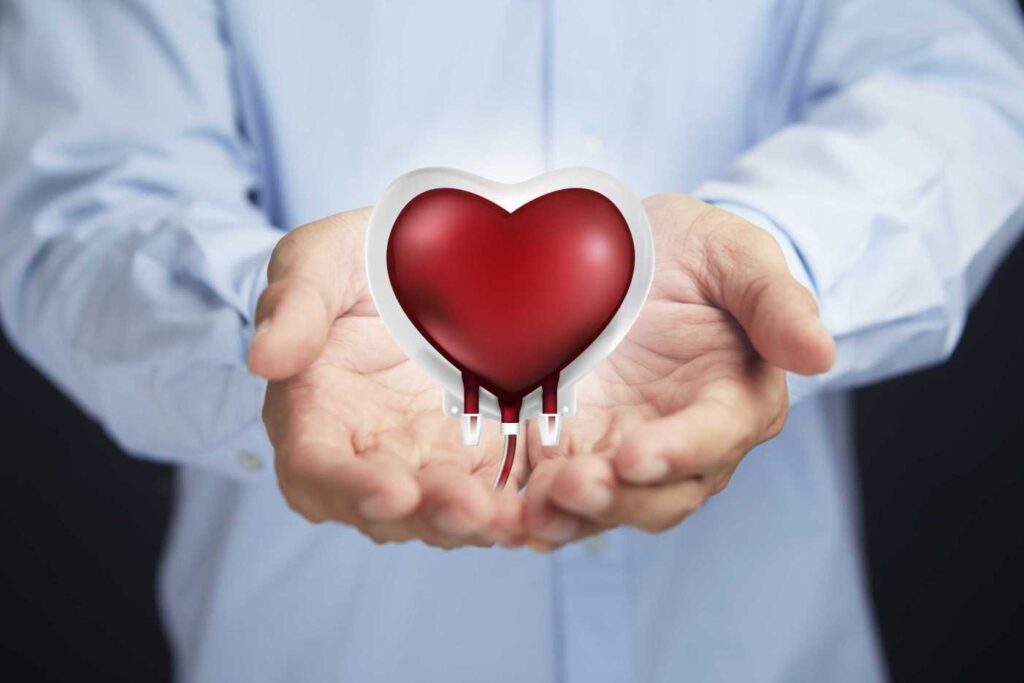Whenever someone wants to donate blood by their choice it is known as blood donation. And whenever we are donating blood, the blood is given to someone else, or the blood is broken down into components and stored in the blood bank for future use.
Table of Contents
What are the different components of blood that are stored?
The different components of blood that are stored are
- Red blood cells (can be stored for 42 days)
- Plasma (can be stored for 1 year)
- Platelets (can be stored for a maximum of 5 days)
How does the blood donation process take place?
When we go to donate blood (at a blood donation camp, blood bank, hospitals, associations), the doctor will do some prelims checks. You need to pass this check to donate blood.
Criteria to donate blood
- The age bar to donate blood is 18 years to 65 years
- Your weight should be more than 50kgs
- Your hemoglobin levels, blood pressure levels, and body temperature should be normal.
If you are marked as “passed” in these parameters then you are eligible to donate blood. Sometimes the doctor may ask you certain questions. These questions include
- The doctor may ask about your previous health conditions ( if you have faced any diseases like surgery or cancer in the last year).
- If you have consumed alcohol in the last 24 hours.
The doctor, based on your answers, will allow you to give blood. The blood donation process takes about 8-10 minutes. The process is painless.
After donating blood the organization will provide you with juice and some cookies for you to eat. Preferably, ask for the orange juice after blood donation as Orange juice is rich in Vitamin C and helps in the absorption of iron. Take 10-15 minutes rest after donating blood and you are now ready to leave.
Is blood donation safe?
To understand whether blood donation is safe for our health or not, we need to understand how much time it takes for the donated blood to be produced in your body. The blood is mainly made up of two components (the plasma and the RBC)
- The plasma takes about 24 hours to be produced in the body
- RBC takes about 4-6 weeks to be produced in the body
Having said that, blood donation does not cause any weakness in the body and we can continue our daily routine as usual.
Benefits of donating blood
There are various benefits of donating blood. The various benefits include
1. Free health check-up
As I have already mentioned until and unless you are completely fit, you cannot donate blood. The doctor checks your body temperature, hemoglobin level, blood pressure level and if all are recorded normal, then you can donate blood. Other tests which are done before blood donation includes HIV test, Hepatitis B and C test, and syphilis test. So this means if you have donated blood you are completely fit.
2. Iron level reduction
Generally, in our body, the iron that we intake gets stores in the heart, liver, and pancreas. So, whenever we are donating blood the iron content of the body also goes down. This is great for our health. Excess iron in our body leads to the chances of developing cancer. In this way donating blood helps in reducing the chances of developing cancer and heart attacks.
3. Calories reduction
Whenever we are donating blood, we are burning almost 400-500 calories. The daily calorie requirement for our body is 2000-2500 calories a day. So removing excess calories is vital for a healthy life.
4. Production of new blood
Donating blood is great for the production of new blood and the removal of old blood. On any given day new blood cells are good for health compared to old ones.
5. Blood donation for a good cause
It has been recorded in the world that every 2 seconds someone needs blood. Especially, in India, only 2% of the population donates blood. So in this case of crisis, if you can donate blood then it is already going for a good cause.
Side effects of donating blood
Side effects of blood donation are very rare. It entirely depends on your immunity and how healthy are you and are very exceptional. The various side effects of donating blood are as follows
1. Dizziness
Dizziness is a side effect of donating blood. But this is temporary as it starts fading away as you rest after donating blood. As soon as you donate blood your blood pressure goes down and causes this Dizziness.
2. Nausea
Nausea is mainly caused due to panic while donating blood. The donor when sees his own blood or is affected by the pain of venipuncture develops nausea. Again this is temporary and relaxing will solve this issue. This is why rest is very important after blood donation.
3. Vomiting
Well, this is an aftereffect of nausea. If you are experiencing nausea you may vomit. This condition is very rare and you should consult your doctor if you experience vomiting.
4. Pain and tingling
Your hands or veins might pain as the blood was taken up from that part. The piercing of the needle causes this pain and it goes away after some time. If the pain continues, consult your doctor immediately.
5. Fatigue
Feeling tired after blood donation is quite normal. Taking rest will solve this problem. But in rare cases, there can be chances of fatigue seen in donor. If this occurs to you, immediately try to rest and have a nap. If the problem persists consult your doctor always.
6. Chills
After donating blood, your blood pressure will go down. This sudden drop in blood pressure can cause chills. The heart will take some time to pump blood throughout the body. This can lead to sweating and chills. Try resting and having good food after donating blood.
7. Infections
This mainly occurs if the needle is not sterilized before taking up the blood. As a result, do not donate blood anywhere. Donate blood in government-approved associations and hospitals only.
Conclusion
So, now you know the importance of donating blood for people who actually needs it. Donating blood is 100% safe, though it has side effects. The side effects are very rare and temporary. So don’t worry and donate for a cause.
ALSO READ
How jamun seeds are great in diabetes?
Are fruits safe for diabetic patients?
How to increase oxygen level in the Covid scenario?
Some questions regarding blood donation answered
Does donating blood reduces blood in your body?
The human body consists of 5-6 liters of blood. And whenever we are donating blood only 350 ml of blood is taken from the 5-6 liters. So, you need not worry about your blood level going down in your body.
After how many days can I donate blood again?
If you are a healthy male or female, you can donate blood every 3 months.
Can you donate blood during Covid 19?
If you are healthy, then there is no problem in donating blood during this pandemic. Currently there are no evidences that coronavirus transfers through blood transfusion.





